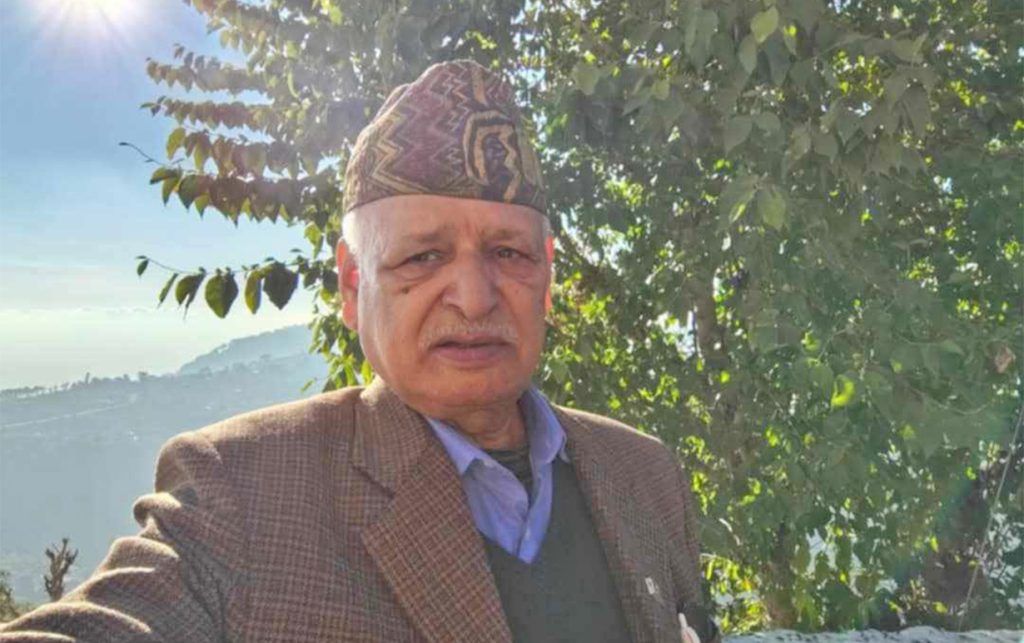As the novel coronavirus continues to spread within communities, words and phrases such as ‘isolation’, ‘quarantine’, ’lockdown’, ‘sanitiser’, and ‘social distancing’ are becoming parts of everyday vocabulary. Particularly, the term ‘social distancing’ has been used by politicians and experts to describe the general population’s contribution to the fight against Covid-19. The term is now saturating the media, the popular culture, and everyday conversation. It has become a moniker for what we need to do to fight the pandemic. However, the term ‘social distancing’ is not appropriate in the present context from the perspective of the science of sociology and sociological theories therein.
‘Social distancing’ refers to a distance across social boundaries. This implies a sense of staying away from social connections and stopping communicating with others. This term blurs the critical distinction between physical and social proximity. It also does little to shape social-psychological dynamics that boost public resilience to sustain the required behavioural change.
‘Social distancing’ comes with a negative connotation that makes people believe they must pull out of all social aspects of lives and completely separate or isolate themselves from others. However, social ties are a critical element for getting through disasters; people cannot be separated or distanced in any condition.

This term could be a threat as it makes people socially isolated and thereby potentially leading to stress, which further contributes to anxiety, solitude, fear, loneliness and grief. They are critical social deviances that could, in turn, lead to a whole new crisis, possibly harsher than Covid-19.
Prof Dr Chaitanya Mishra, a renowned Nepali sociologist, rightly argues, “Covid-19 is a disease that should be avoided. But, we are avoiding people by moving away from them.” Mishra has argued the term ‘social distancing’ is misleading and possibly becoming a threat to our sense of social solidarity.
According to John M Grohol, the CEO of Psych Central, a pioneering mental health social networking community, “Social distancing is not only a misnomer, but it is also exactly the opposite of what we want people to do during any type of natural disaster.” It is especially important to ensure continued connections with people who are typically marginalised and isolated, including the elderly, undocumented immigrants, homeless persons and those with mental illness.
The term ‘social distancing’ is a reflection of the individualist lifestyle of westerners, where the notion of family and society is generally negated. The term has its root in their culture and pattern of life. It may be implemented in them. But, this cannot be equally applied in the eastern countries, where society is always placed in the topmost position.

Many sociologists are worried that today’s ‘social distancing’ may turn into ‘social exclusion’ in future. The term does not only have a linguistic problem but also is bad from a psychological point of view. This is intending to develop a wrong psyche that may compromise the needs of society, socialisation and social institutions. This is against the norms and values of social hobnobbing and social integration too.
On March 20, the World Health Organization (WHO) also said that ‘social distancing’ should be replaced by ‘physical distancing’. The agency adds, “In this harsh condition, social distancing should be discouraged by maintaining physical distancing”. The term ‘social distancing’ is misleading because in times like these, we need to stay emotionally and socially connected.
A leading theory of suicide, by Emile Durkheim, emphasises the key role that social connections play in suicide commission. Suicidal thoughts and behaviours are associated with social isolation and loneliness. Therefore, the consequences of the use of the phrase ‘social distancing’ may increase the risk of suicide, and also crimes.

The term ‘social distancing’ can be interpreted as a function of an individual’s ‘prejudice’ towards their sociological group. This seems to be anti-social and implies that we should be less social.
‘Social distancing’ is the wrong term. We should put physical distance between us, but we need to remain as social as ever (indeed more social than ever) finding new ways of being social.
Therefore, ‘sociological distancing’ should be replaced by ‘physical distancing/separation’ as it involves physically keeping yourself away from other people, but staying socially connected.

























